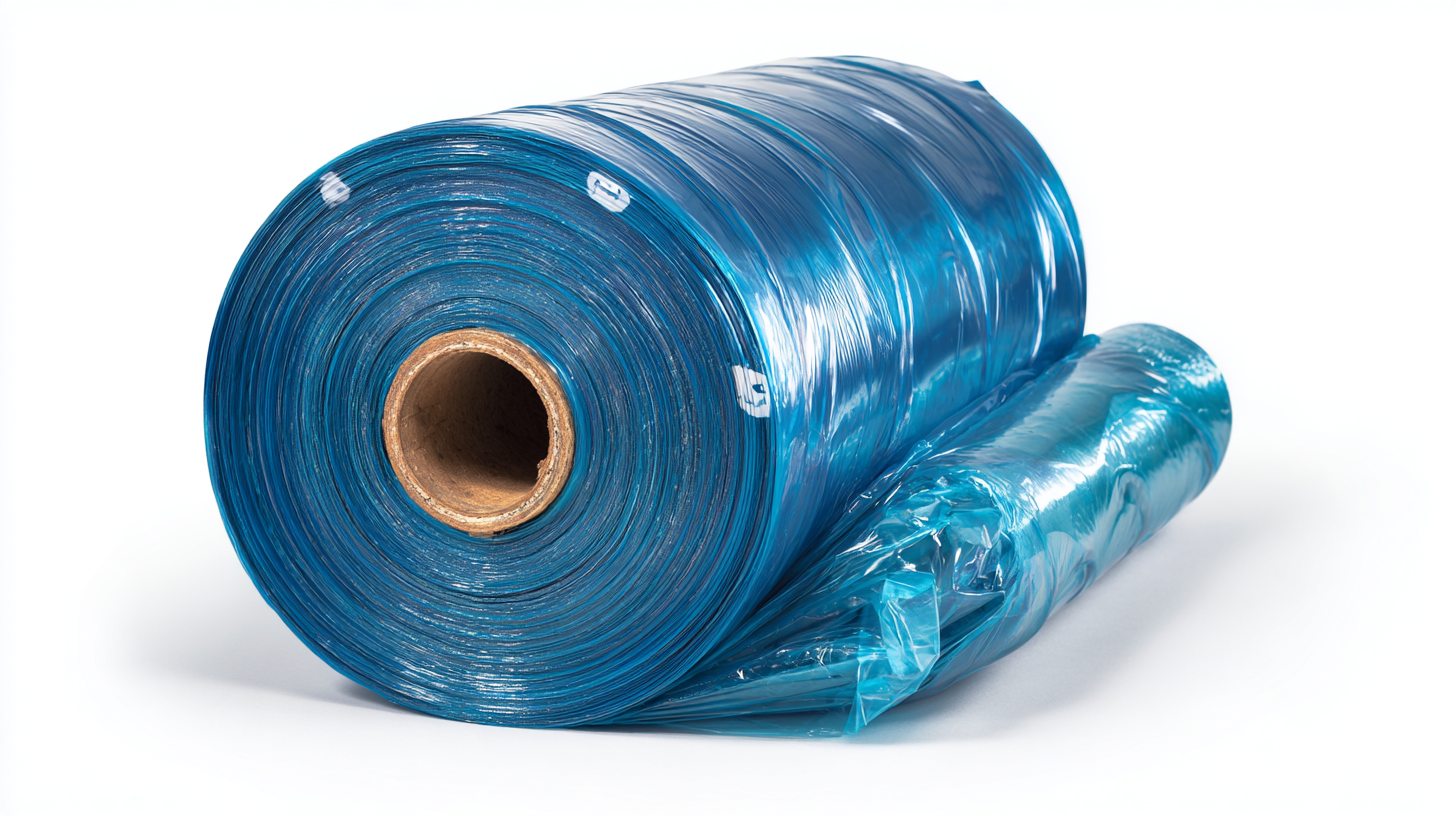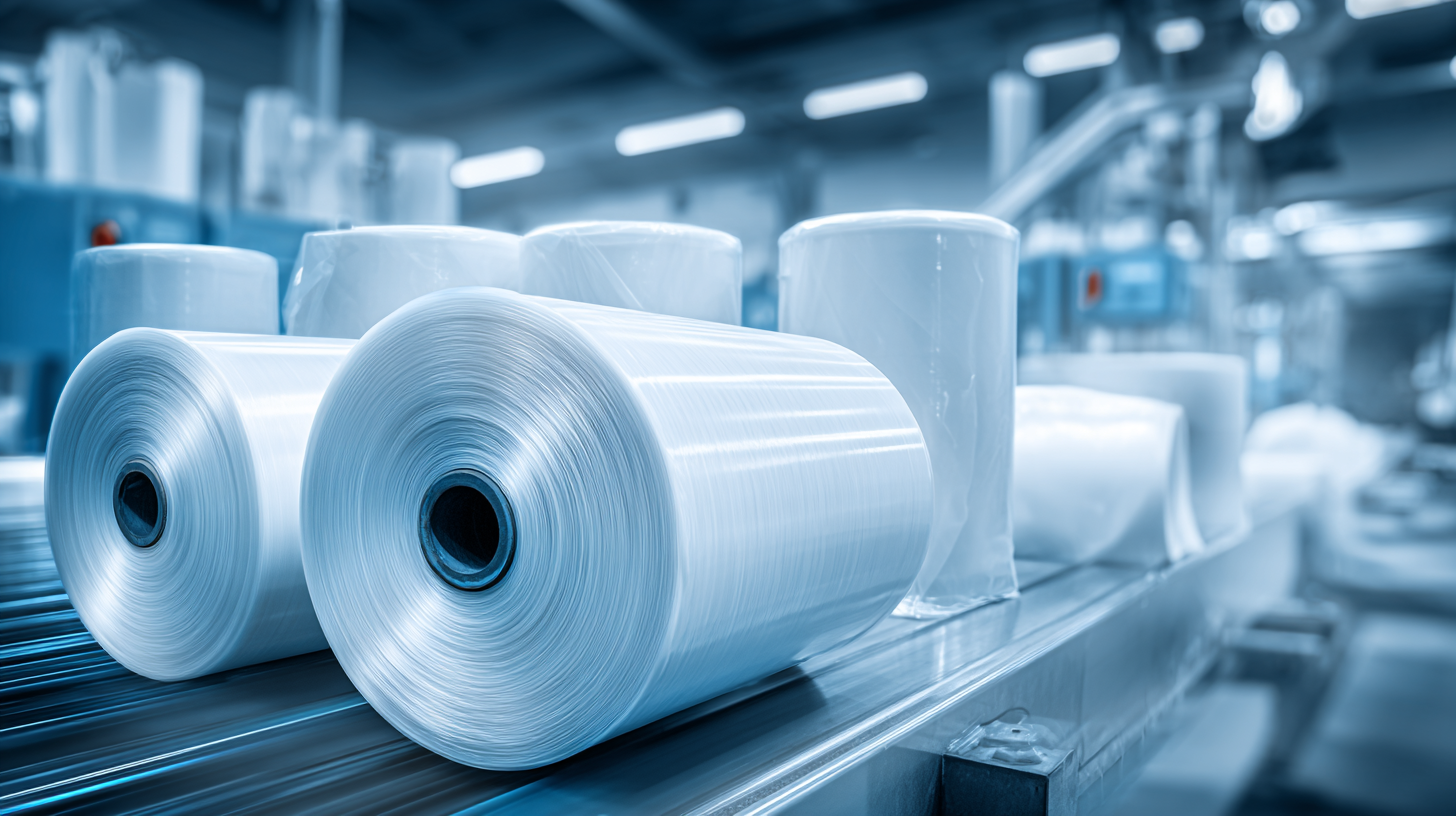In today's competitive landscape, businesses are constantly seeking ways to maximize value and enhance their operational efficiency. One effective solution lies in the utilization of plastic shrink wrap, a versatile packaging material known for its durability and effective containment properties.
 However, the benefits of plastic shrink wrap extend beyond its physical attributes; exceptional after-sales support plays a pivotal role in ensuring that companies fully capitalize on their investment. This guide aims to explore how optimal use of plastic shrink wrap, combined with responsive customer service and robust after-sales assistance, can not only improve product presentation and safety during transport but also foster long-term relationships with clients and boost overall satisfaction.
However, the benefits of plastic shrink wrap extend beyond its physical attributes; exceptional after-sales support plays a pivotal role in ensuring that companies fully capitalize on their investment. This guide aims to explore how optimal use of plastic shrink wrap, combined with responsive customer service and robust after-sales assistance, can not only improve product presentation and safety during transport but also foster long-term relationships with clients and boost overall satisfaction.
By understanding the nuances of selecting the right plastic shrink wrap and leveraging superior support, businesses can significantly enhance their packaging operations, ultimately leading to increased profitability and operational success.
As the plastic shrink wrap industry evolves, trends influencing its market are shifting notably towards sustainability and innovation. By 2025, the global shrink wrap market is projected to reach approximately $14 billion, driven by increasing demand in sectors such as food packaging, pharmaceuticals, and e-commerce. This growth aligns with the rising consumer preference for eco-friendly packaging options, pushing manufacturers to explore alternatives such as biodegradable films and recyclable materials. Innovations in technology, including advances in multilayer film production, enhance the durability and usability of shrink wraps, significantly impacting their performance in various applications.
**Tip:** When selecting plastic shrink wrap, consider investing in high-performance materials that not only ensure product safety but also align with sustainability goals. Look for manufacturers that provide transparent sustainability certifications, which can boost your brand’s reputation and appeal to environmentally conscious consumers.
Furthermore, market insights indicate that in 2025, the demand for automated packaging solutions will see a sharp increase. This shift is believed to improve efficiency in packaging processes across industries, thereby reducing labor costs and waste. As businesses increasingly adopt these solutions, those who prioritize exceptional after-sales support will have a competitive edge in maintaining customer satisfaction and loyalty.
**Tip:** Ensure your supplier offers robust training and support for any automated systems you implement. This will enhance operational efficiency and ensure that your team is well-equipped to handle any challenges, maximizing the efficacy of your plastic shrink wrap applications.
Exceptional after-sales support plays a crucial role in enhancing customer satisfaction, particularly in the realm of shrink wrap applications. Customers investing in plastic shrink wrap products often face challenges related to installation, maintenance, and troubleshooting. Providing comprehensive support post-purchase not only helps in resolving these issues swiftly but also instills confidence in the users. When customers know they have access to knowledgeable representatives ready to assist with their queries, it transforms their overall experience and fosters a long-term relationship with the brand.

Moreover, after-sales support contributes significantly to maximizing the value derived from shrink wrap products. By offering guidance on optimal usage techniques, customers can achieve better results, reducing waste and improving efficiency. Training sessions and readily available resources empower customers to fully utilize their shrink wrap systems, lowering the likelihood of costly mistakes. The direct engagement with customers through feedback collection further reflects a brand's commitment to quality and satisfaction, ensuring continuous improvement in both products and services.
In this competitive market, exceptional after-sales support not only enhances customer loyalty but also establishes a strong reputation, ultimately driving business success.
The demand for high-quality plastic shrink wrap is surging across various industries, driven by the need for superior packaging solutions that enhance product protection and presentation. As businesses recognize the importance of maintaining product integrity during transportation and storage, they increasingly rely on data-driven insights to choose the right shrink wrap. This shift is fueled by a broad spectrum of industries, including food and beverage, pharmaceuticals, and consumer goods, which require durable and reliable packaging to meet consumer expectations and regulatory standards.
Moreover, the growth in e-commerce has further amplified the need for efficient packaging solutions. Companies are seeking shrink wraps that not only offer protection but also contribute to sustainability goals. High-quality shrink wraps can reduce waste and improve shipping efficiency, addressing both operational cost concerns and environmental responsibilities. As a result, manufacturers are investing in advanced technologies and materials to develop shrink wraps that provide optimal performance while appealing to the eco-conscious consumer. This evolving landscape highlights the crucial role that data analytics plays in understanding market trends and consumer preferences, ultimately guiding businesses towards smarter packaging choices.

In the rapidly evolving landscape of 2025, optimizing shrink wrap performance requires a strategic approach that is informed by industry leaders who have thrived amid recent supply chain disruptions. Reports indicate that global industrial manufacturing sectors are focusing on resilient and efficient supply chains, responding to significant challenges faced in the past few years. Aligning shrink wrap production with these strategies can enhance value, ensuring that manufacturers meet both demand and sustainability goals.
Furthermore, as marketing budgets tighten, CMOs are encouraged to do more with less, emphasizing the importance of innovative packaging solutions that stand out in a crowded marketplace. The recent Gartner CMO Spend Survey highlights that 65% of marketing budgets are being redirected towards enhancing operational efficiencies and maximizing product appeal. By leveraging best practices in plastic shrink wrap technology, companies can not only protect their products but also enhance their brand visibility and customer engagement, ultimately driving higher returns in an increasingly competitive environment.
| Dimension | Performance Metric | Leader's Average (% Improvement) | Best Practices |
|---|---|---|---|
| Wrap Strength | Tensile Strength (MPa) | 20% Improvement | Use of high-quality resins |
| Clarity | Optical Clarity (%) | 15% Improvement | Optimized polymer blend |
| Seal Integrity | Seal Strength (N/cm) | 25% Improvement | Consistent heat sealing |
| Sustainability | Recyclability (%) | 30% Improvement | Advancement in biodegradable materials |
| Cost Efficiency | Cost per unit ($) | 10% Reduction | Bulk material procurement |
In the world of plastic shrink wrap, understanding the challenges and opportunities that arise in its use is essential, particularly when it comes to after-sales support. Effective strategies can help customers navigate the complexities of choosing, using, and disposing of plastic wraps. As an increasing number of consumers seek eco-friendly alternatives, it’s vital for businesses to provide comprehensive guidance on proper disposal methods, as well as recycling options. Education about product sustainability not only meets consumer demand but also minimizes environmental impact, promoting a circular economy.
Moreover, expert after-sales support can empower users with practical tips, enhancing their overall experience with plastic shrink wrap. For instance, strategies that focus on the correct application techniques and storage solutions can maximize the product's efficiency and lifespan, leading to higher customer satisfaction. As the market evolves with new eco-friendly options, businesses must leverage their expertise to help consumers make informed choices about the best products for their needs, all while addressing the pressing concerns of plastic waste. By prioritizing exceptional after-sales support, companies can truly maximize value and foster loyalty among their customer base.
